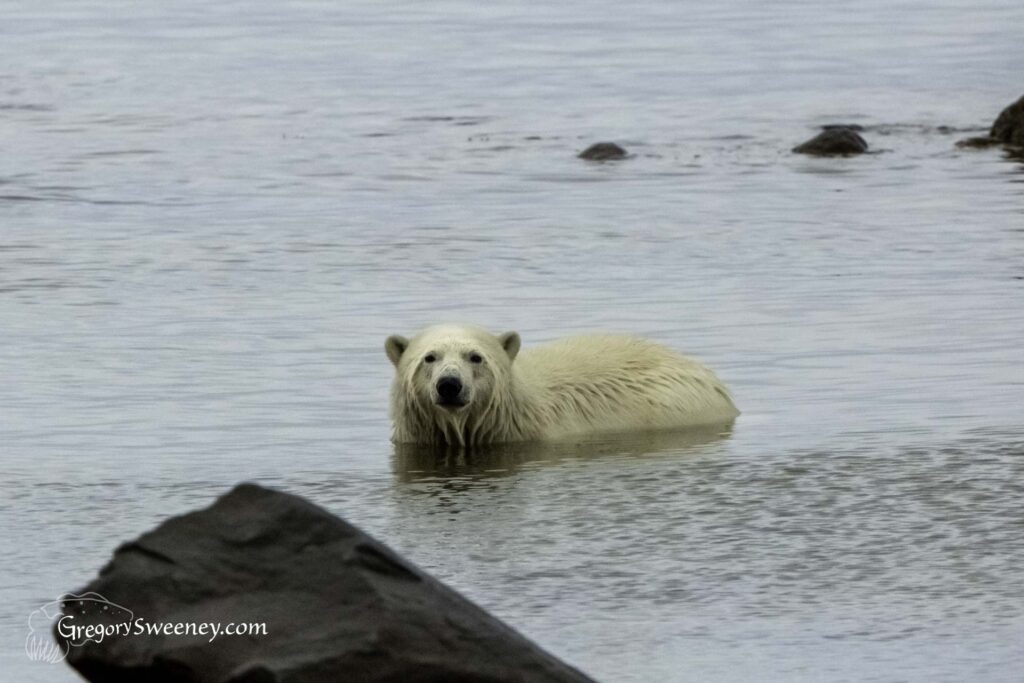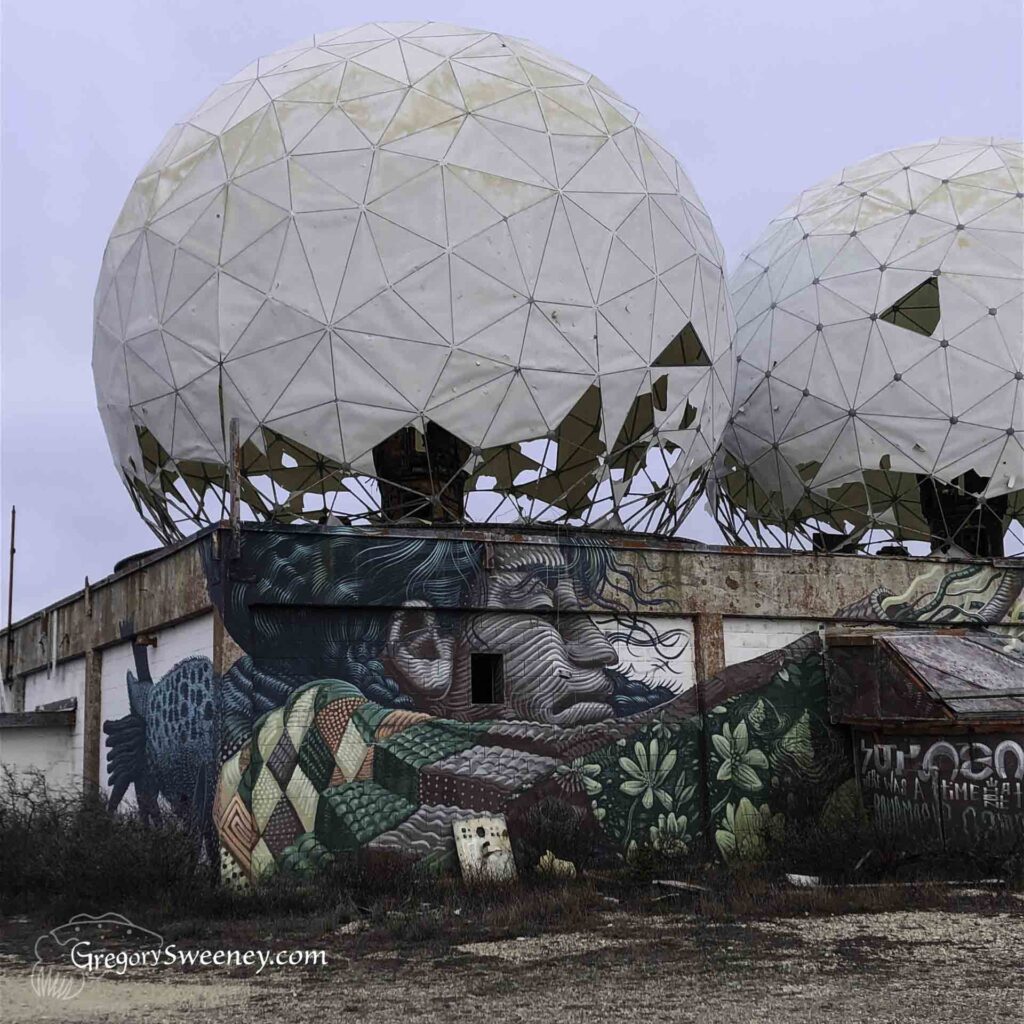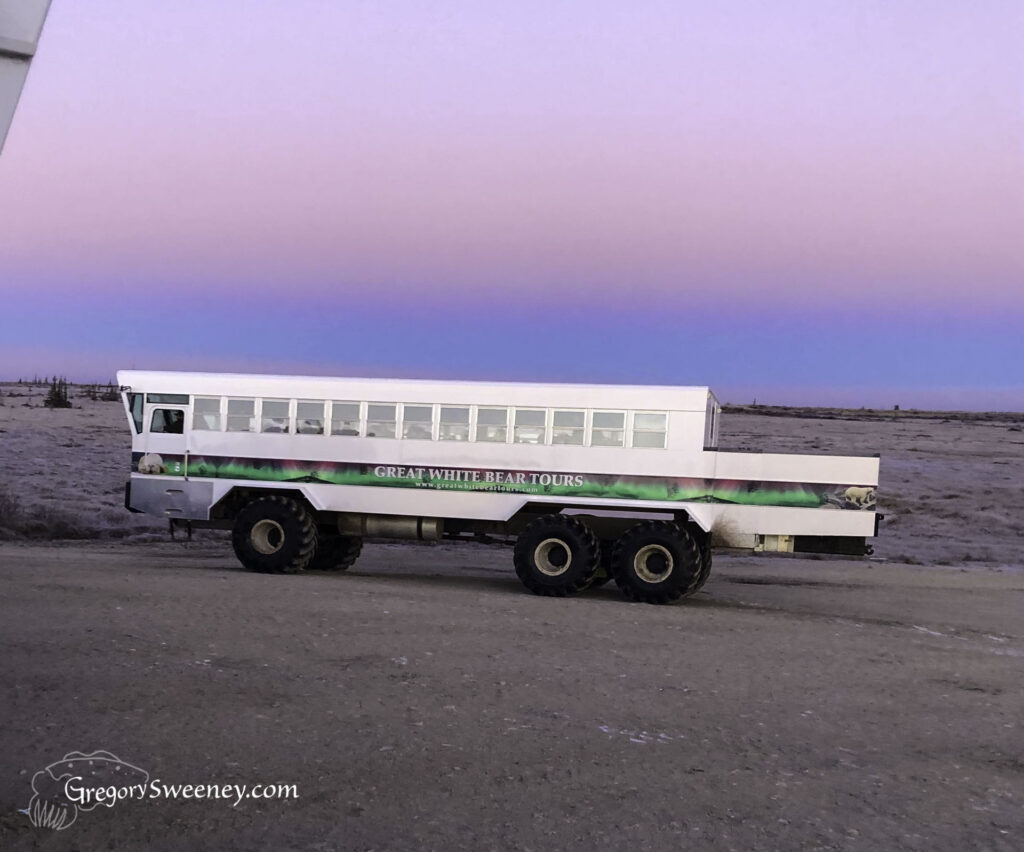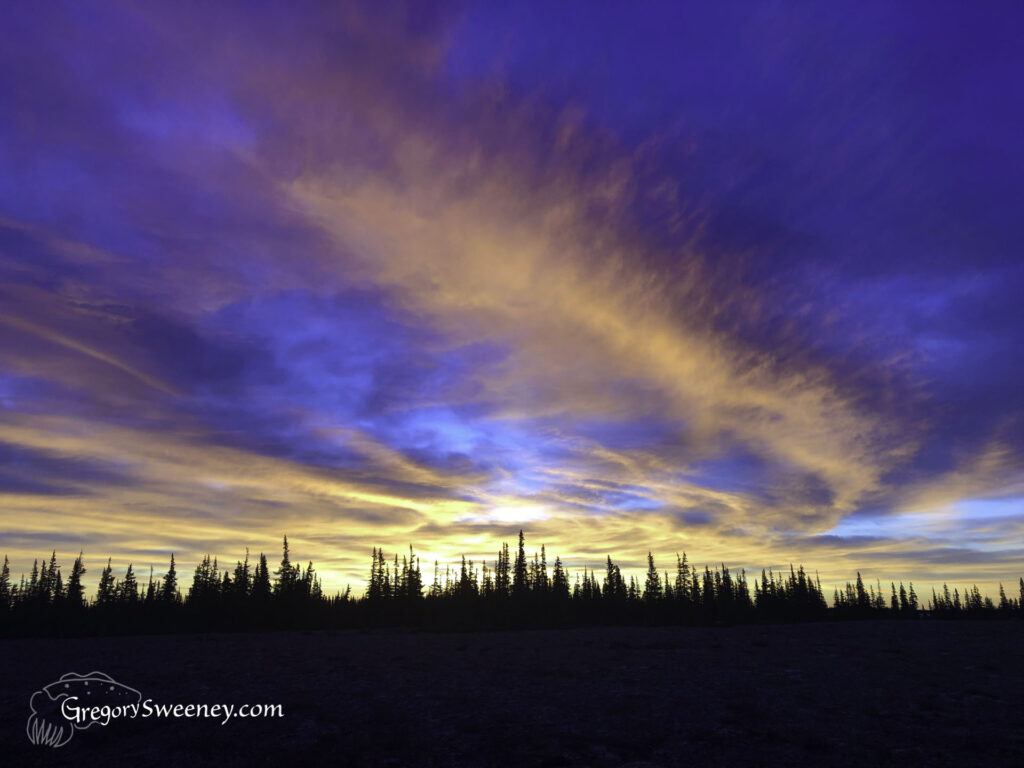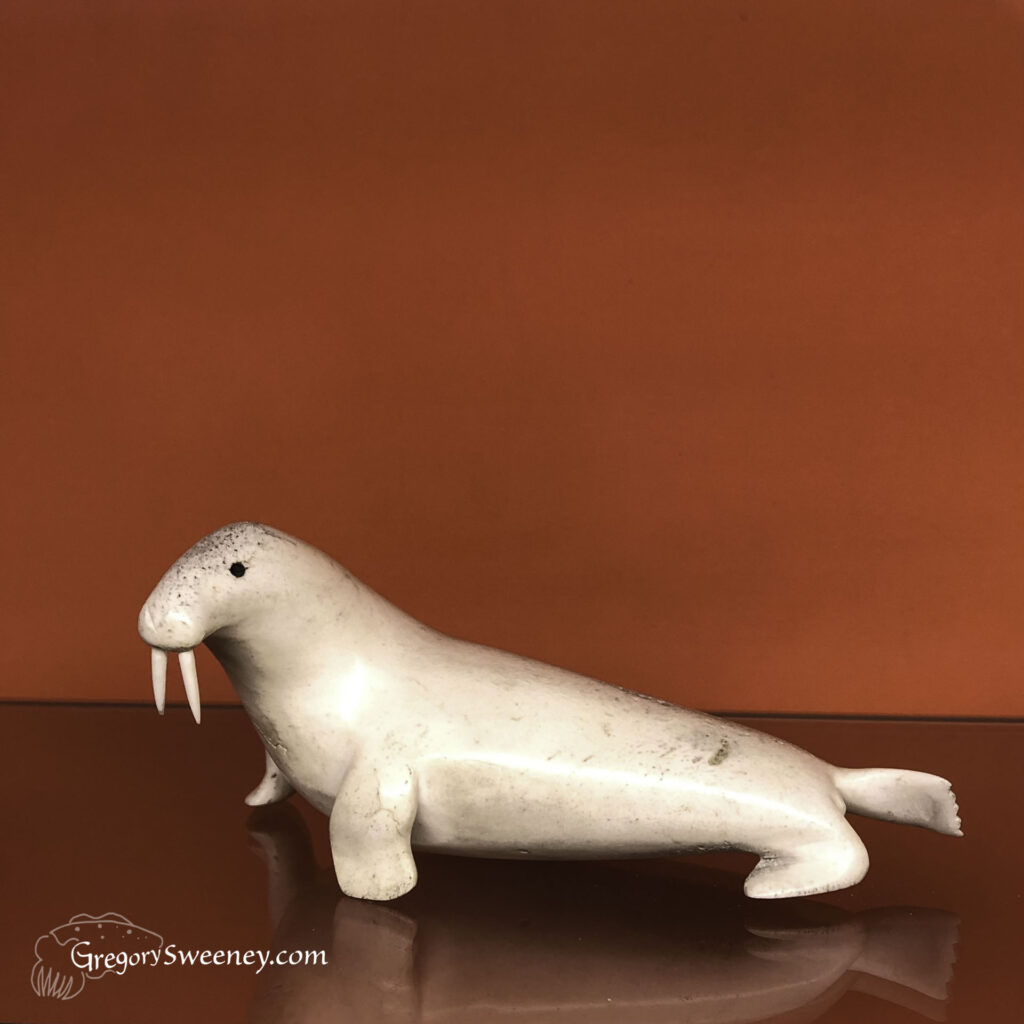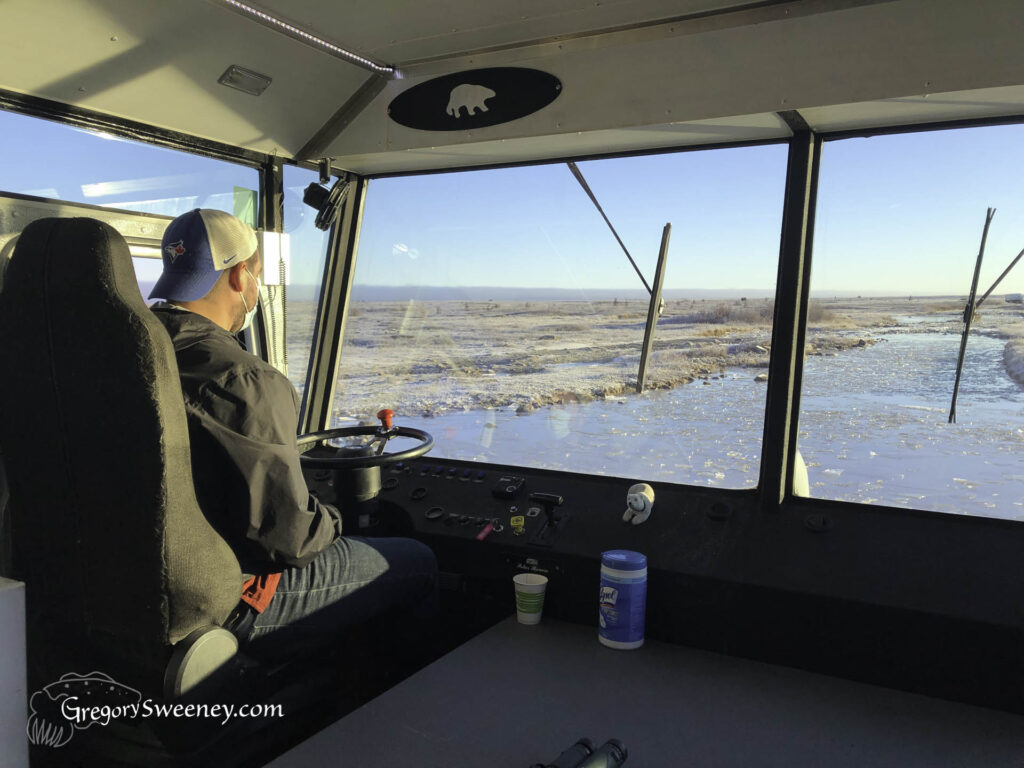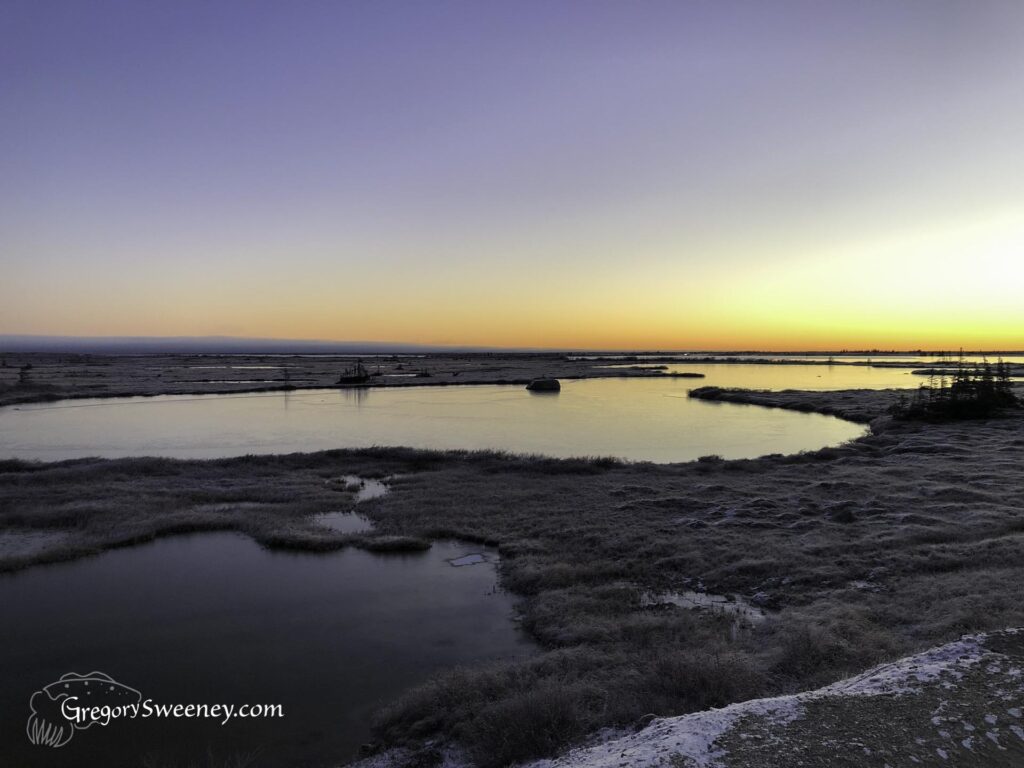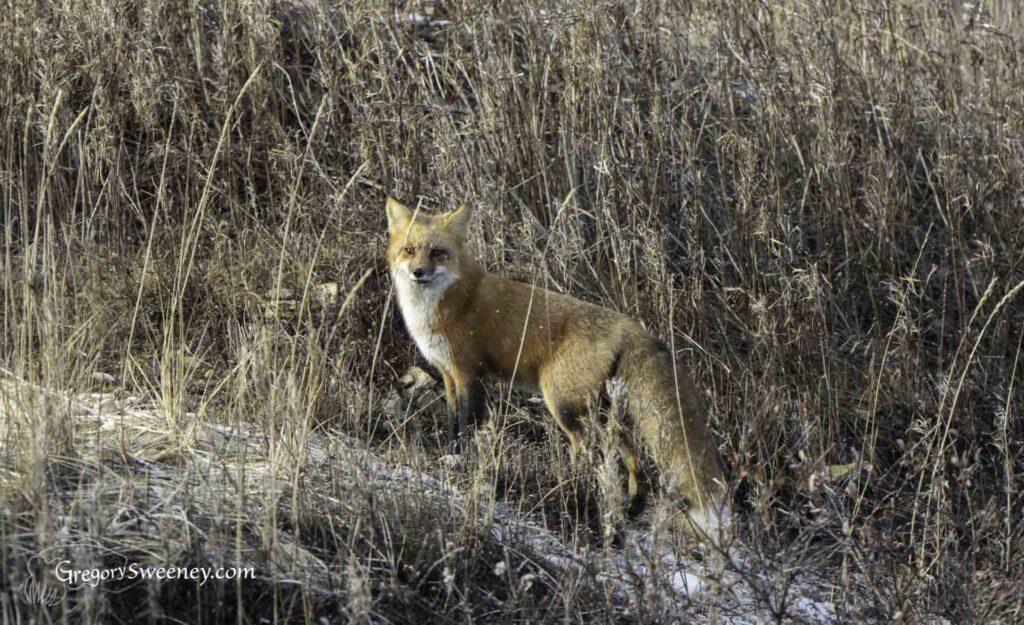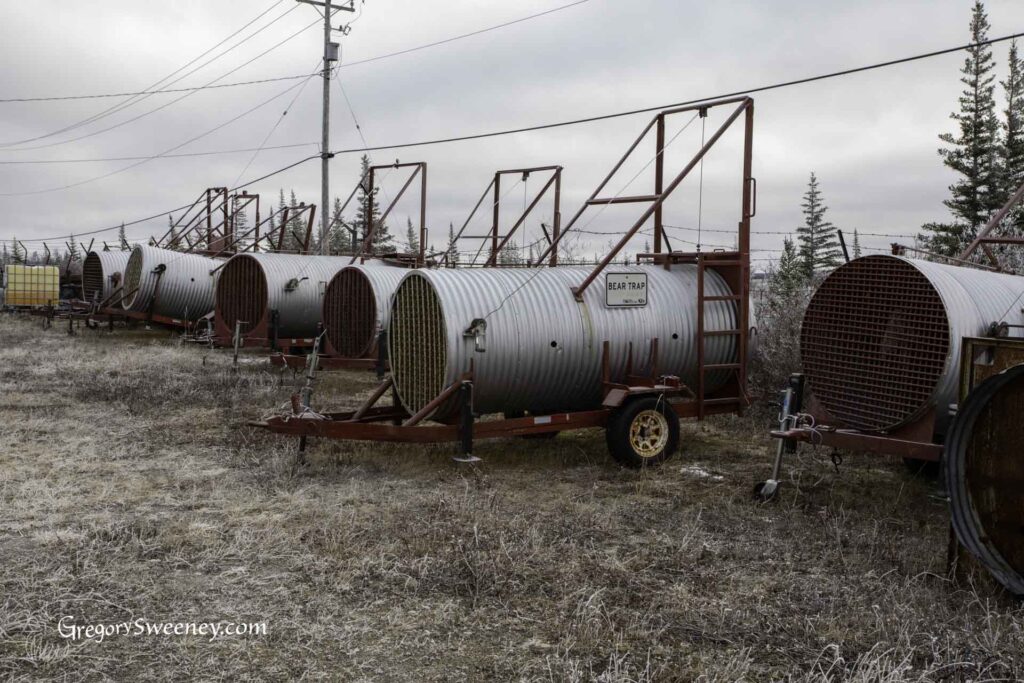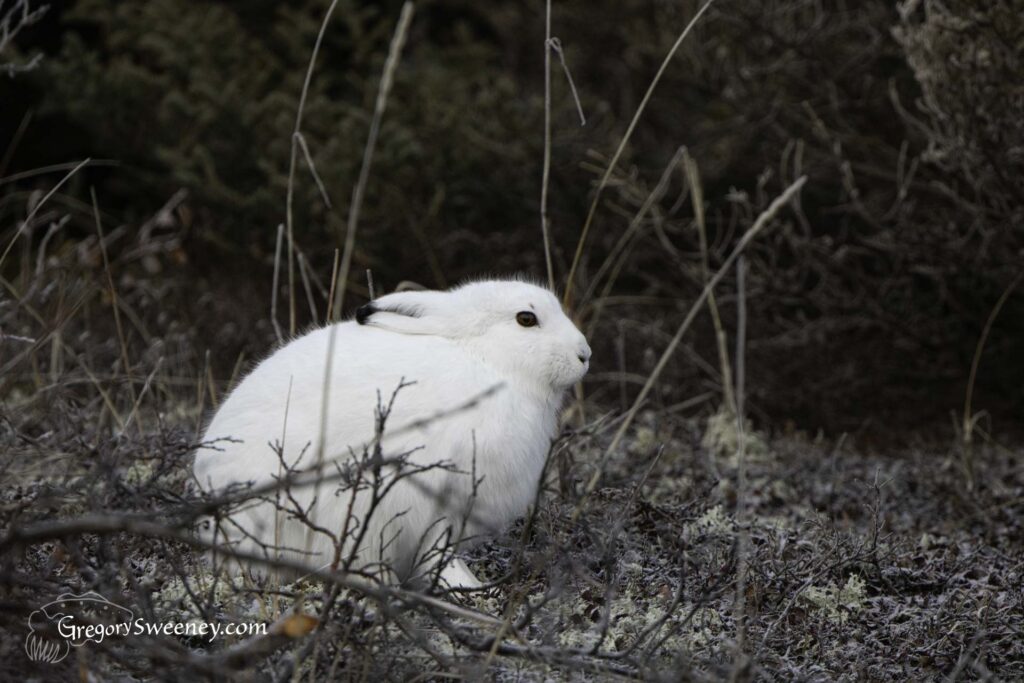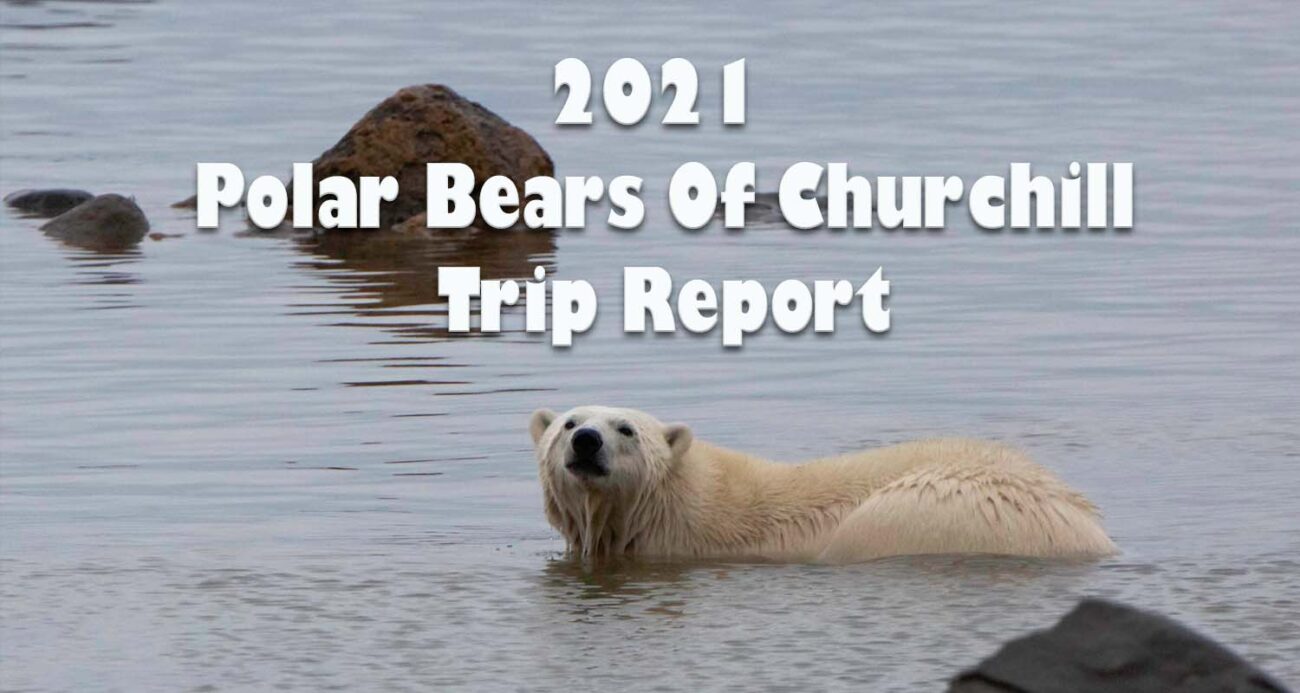
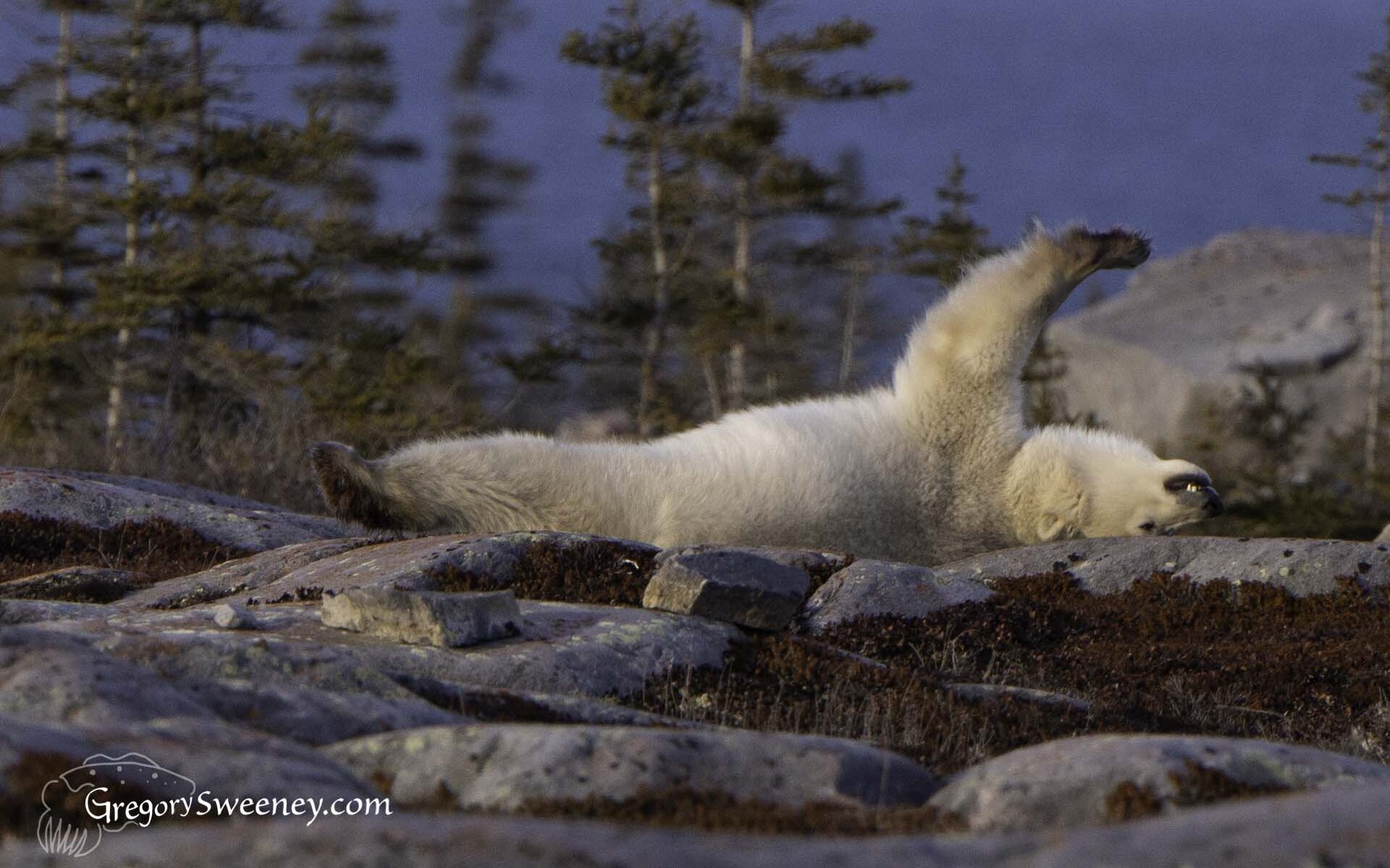
Polar Bear Trip Report 2021
I would like to thank all of the guests who made this trip a success and a joy. It was a mix of wonderful personalities and we truly enjoyed being together the whole trip. I know all of you returned with great memories and a pleasing collection of images and I am honored to have been able to help you achieve this.
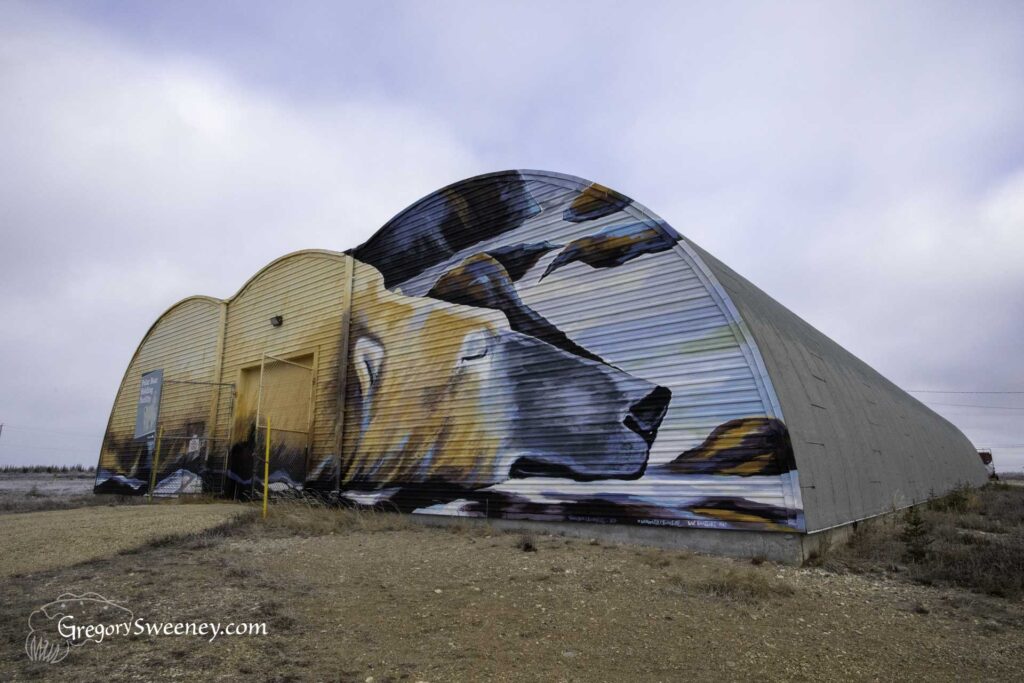
Why Look for Polar Bears in Churchill?
Churchill is a very good destination for photographing polar bears because of its geography and its effect on the bears. In October and early November, polar bears are getting ready to head out onto the ice so they can hunt seals all winter. The ice forming in the Hudson Bay around Churchill will allow the bears to travel out sooner than in the surrounding areas so they congregate in the area awaiting their chance to move out.
Churchill has a color past the includes being the sight of army bases and missile and radar installations. Remnants of these remain and the town dresses up these relics with murals.
The concentrated number of bears gives us better odds of having very good encounters with multiple bears. We can spot them on the beaches, shoreline, rocks, and in the Churchill Wildlife Management Area tundra.
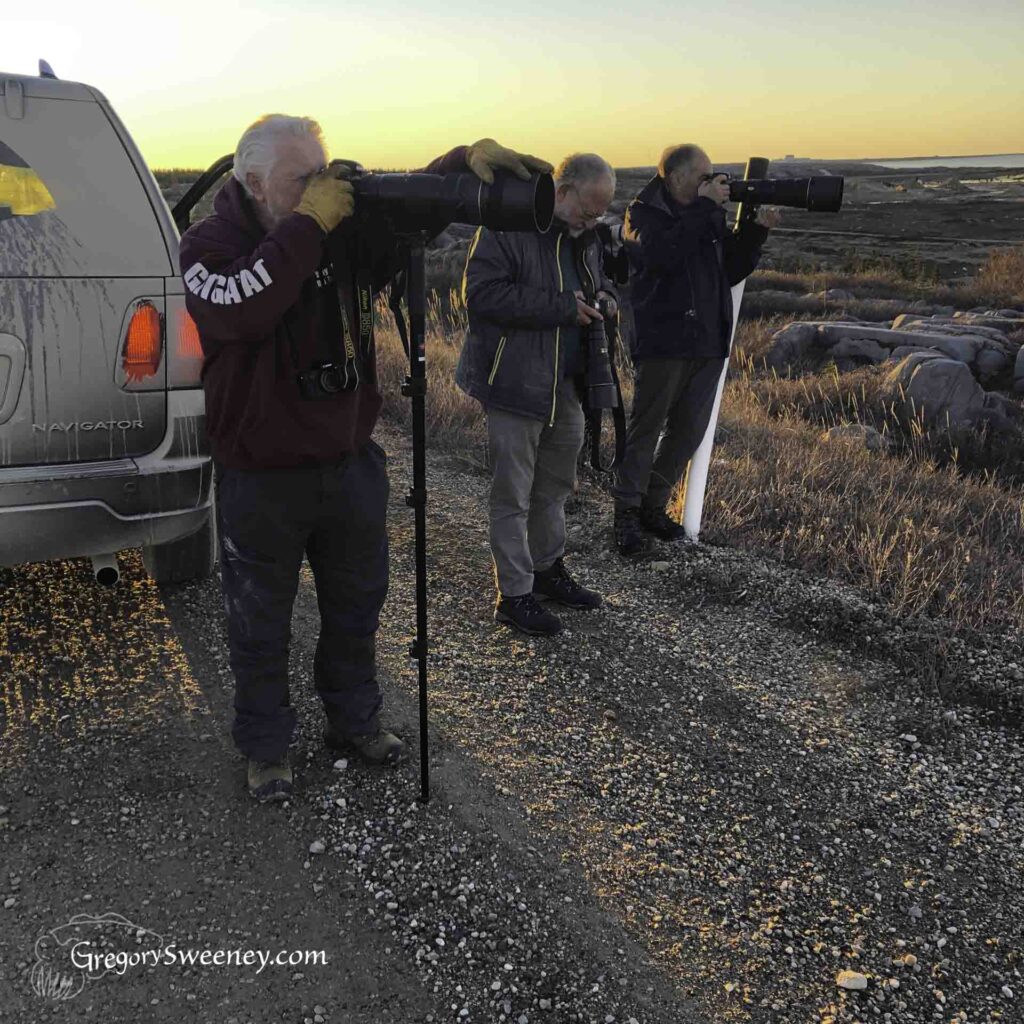
The 2021 Itinerary
Our trip started in Winnipeg. Many of my guests were Canadians and this trip marked the first time they had traveled in quite a while. The rest of us had to meet the increased requirements to enter Canada. The following day we all traveled together on the flight up to Churchill. This isolated town is accessed in only two ways: the airplane or a multiday ride on the train; no road exists.
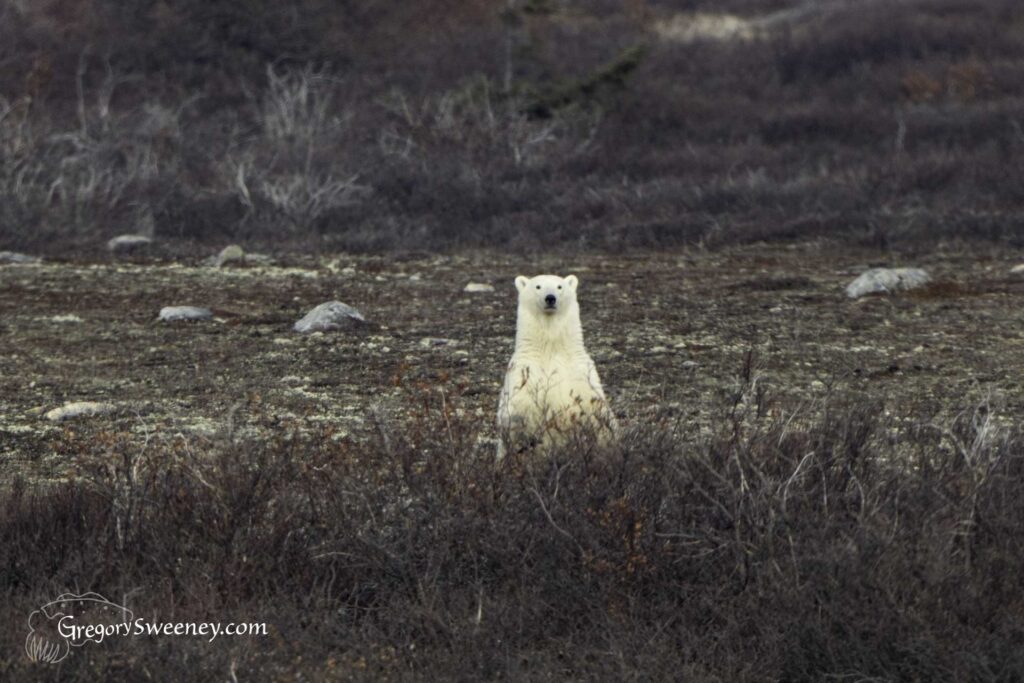
We skip the luxury accommodations available in town and instead stay within the Wildlife Reserve at the Churchill Northern Studies Centre. This research building is ecofriendly and rated and provides us plenty of room to relax after our day out along with an observatory dome, outside deck for night photography and Northern Lights, and rooms for meetings and socializing.
We used the first afternoon to get some supplies in town and drive around in search of polar bears. Just at the golden hour of sunset we found a group of locals and visitors all looking at a mother bear and two cubs as they walked over the rock ridge. We photographed them then watched as they descended to the beach.
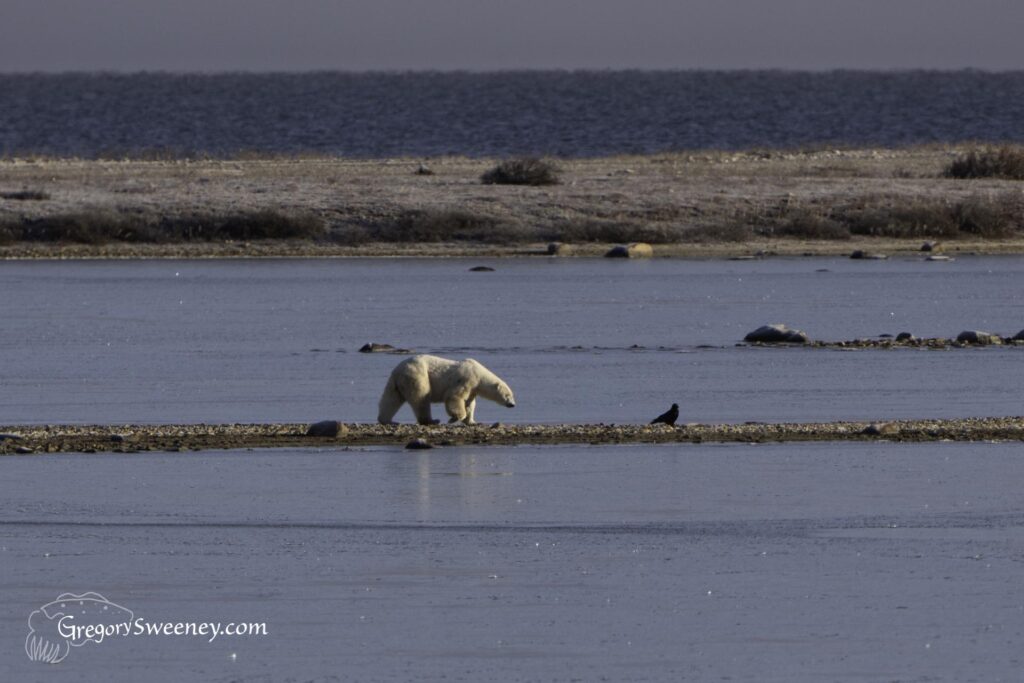
Our first day out was a tour of the reserve area on a tundra vehicle; the only way to access this vast area. On board were naturalists who shared good information about the area and polar bears. Along the way we photographed 7 different bears ranging from close to distant. The open back deck of the vehicle provided us space to use a tripod and we could also shot out the open windows.
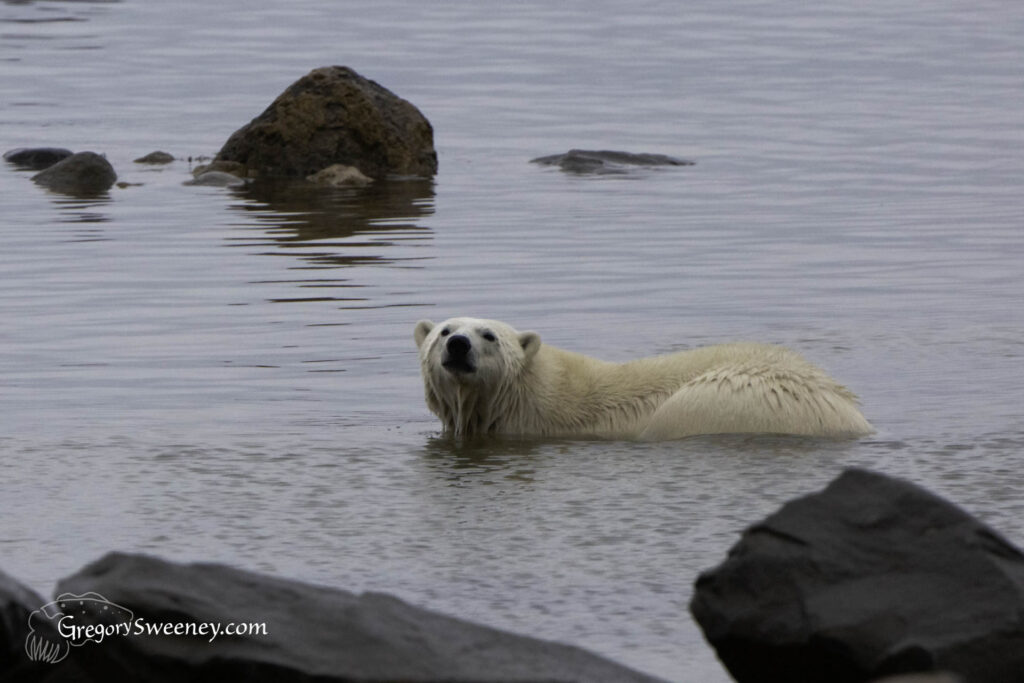
The next two days we drove ourselves in two vehicles all over the area finding bears on the beach, sheltering out of the wind on the sun warmed rocks, and in the water. Many of the encounters were very close. We also had multiple encounters with arctic hare who sat stoically for us while we photographed from inside and outside the vehicles. Thoughout the trip we had at least two red fox photo opportunities as well as snow geese and ptarmigan. The snowy owl alluded our cameras though we did see one in flight.
The skies were clear and visibility was better than any other year which made spotting much easier. The sunrises and sunsets were spectacular, an awesome way to start each day.
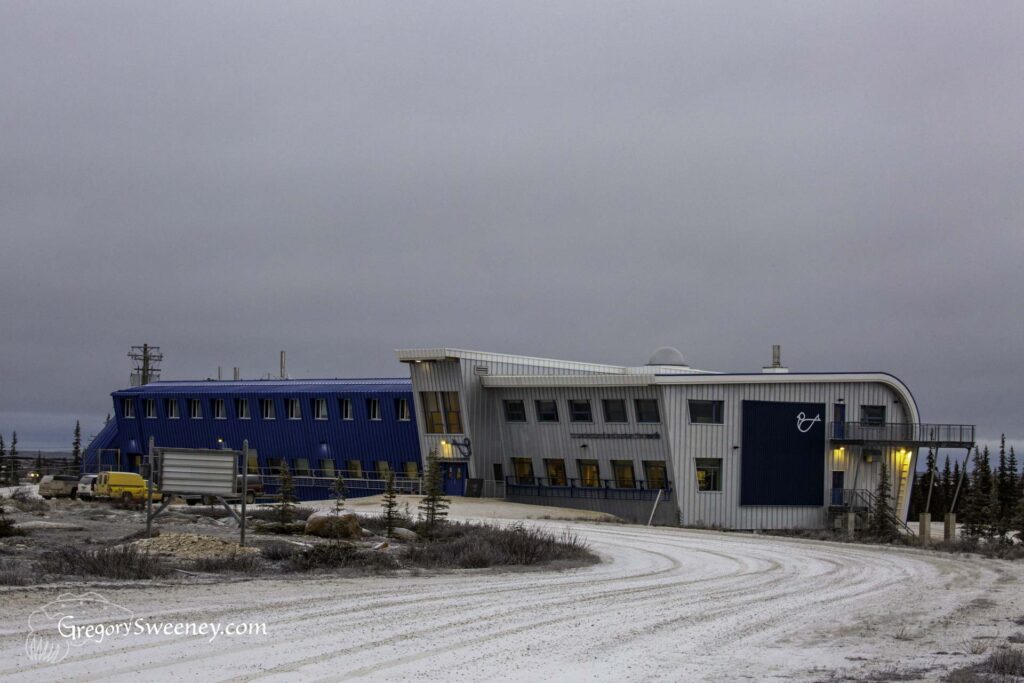
Camera Equipment
I packed the following lenses :
Canon EF 17 – 40mm
Canon EF100 – 400mm IS II
Canon EF400mm with 1.4 teleconverter
GoPro 8 and Iphone
Tripod with gimbal head
Monopod
Binoculars
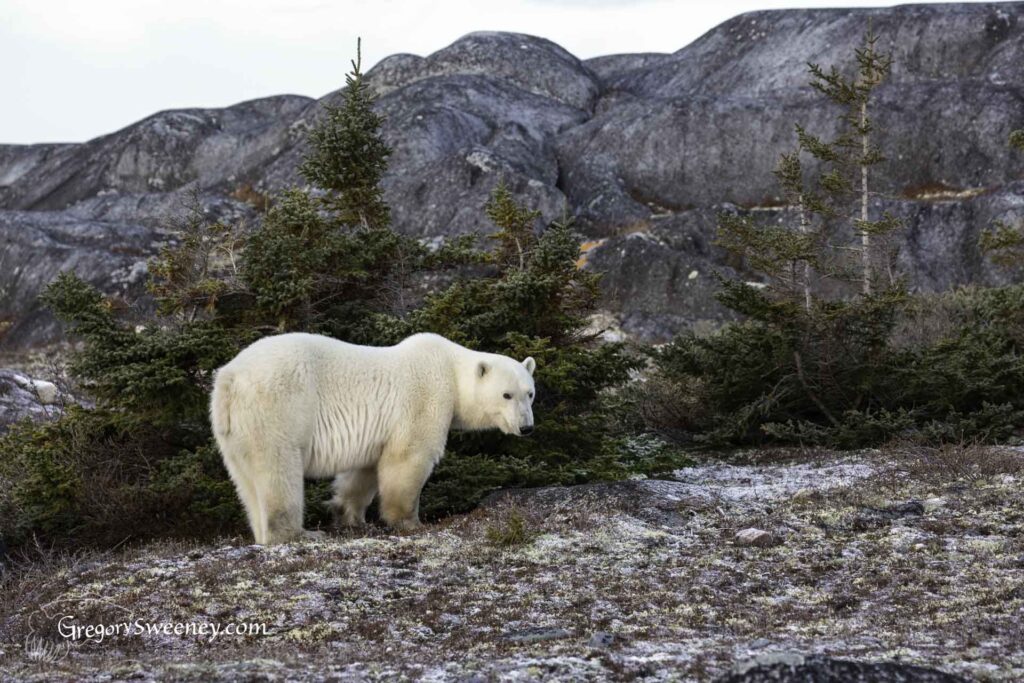
While long lenses are needed for some of the encounters, we have always been able to find bears within meters of our vehicles which are well within reach of medium level cameras.
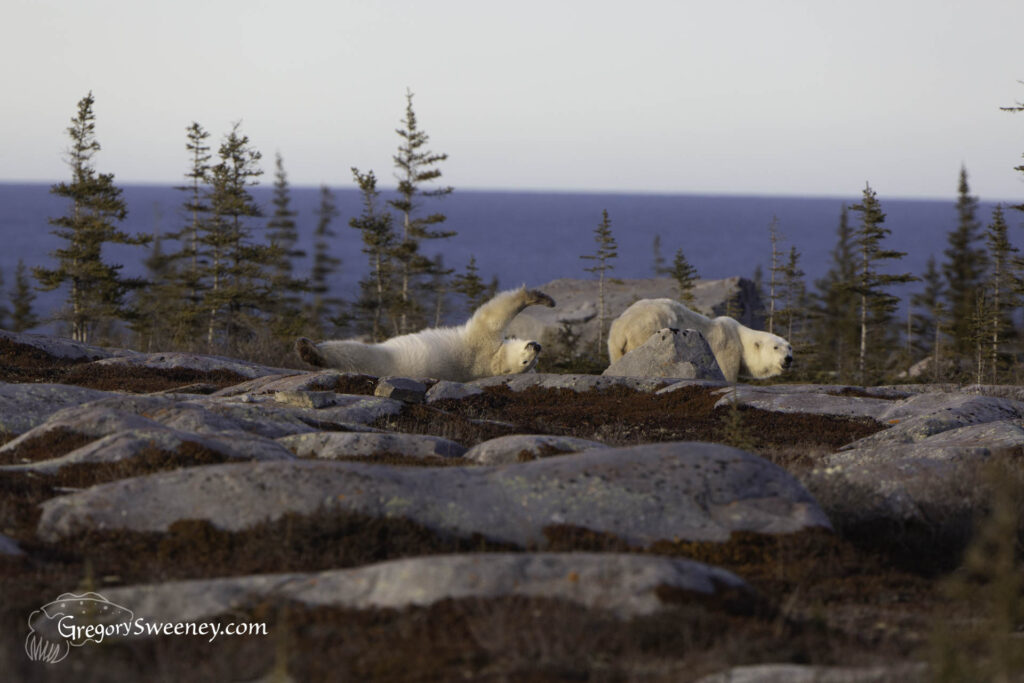
Each Images has a story behind it
Towards the end of our day on the tundra vehicle we found two male bears walking together. One was younger and the other clearly much older but despite the age gap they traveled together. As they approached, everyone had windows open and the back deck was full of photographers. The bears with their incredible sense of smell could smell us and paused with curiosity to locate the source of the odor. The older bear stood up tall to get a better look and we were able to get images of the bear with a quizzical look on his face.
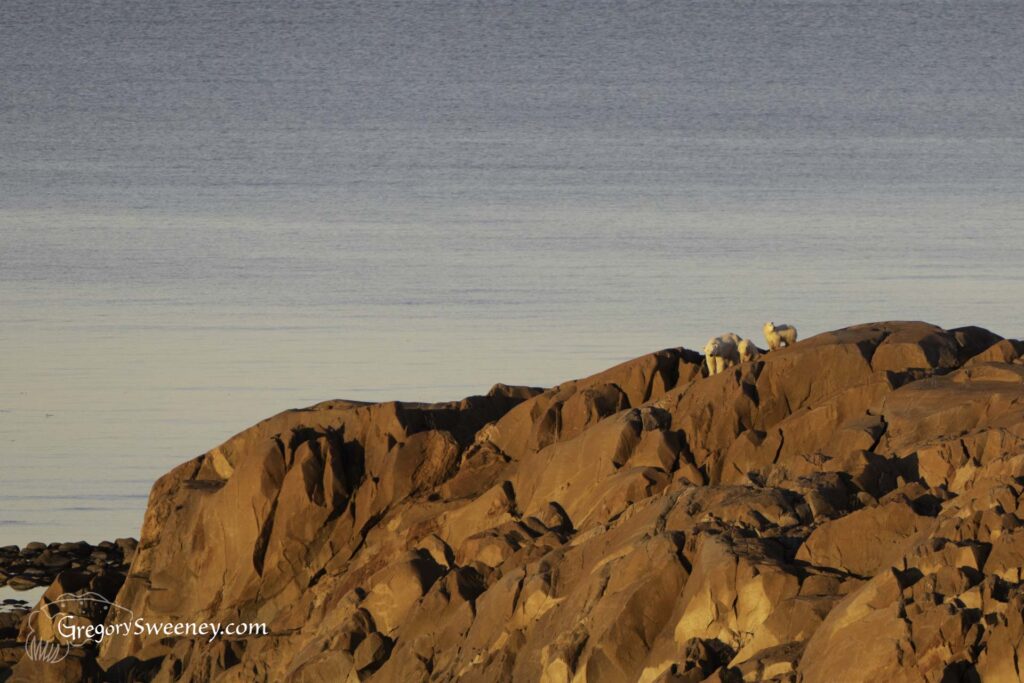
The most photographed bear on this trip was one we found near the side of a road who was engrossed in eating any plant material it could find. We watched it dig and chew until sunset then returned the next morning to find it still resting in shelter among the rocks. It continued to eat until finally moving on. We felt bad that it must be hungry but still has at least a week before the ice forms and it can hunt a meal.
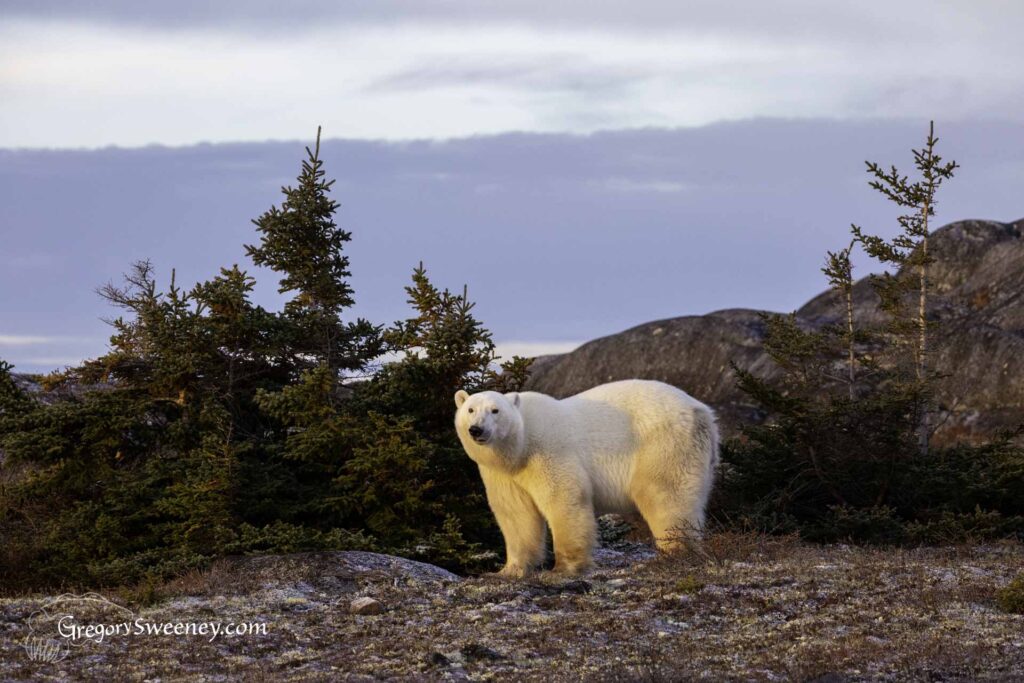
On our last day and last hours before departing we were still packing in as many bear as possible. A small white dot on the rocks lead us to a beach where we waiting to see where it went. We were rewarded with a bear who came to us along the beach then shocked us by going into the water right near our position. What a treat to get images of the bear swimming in the water.
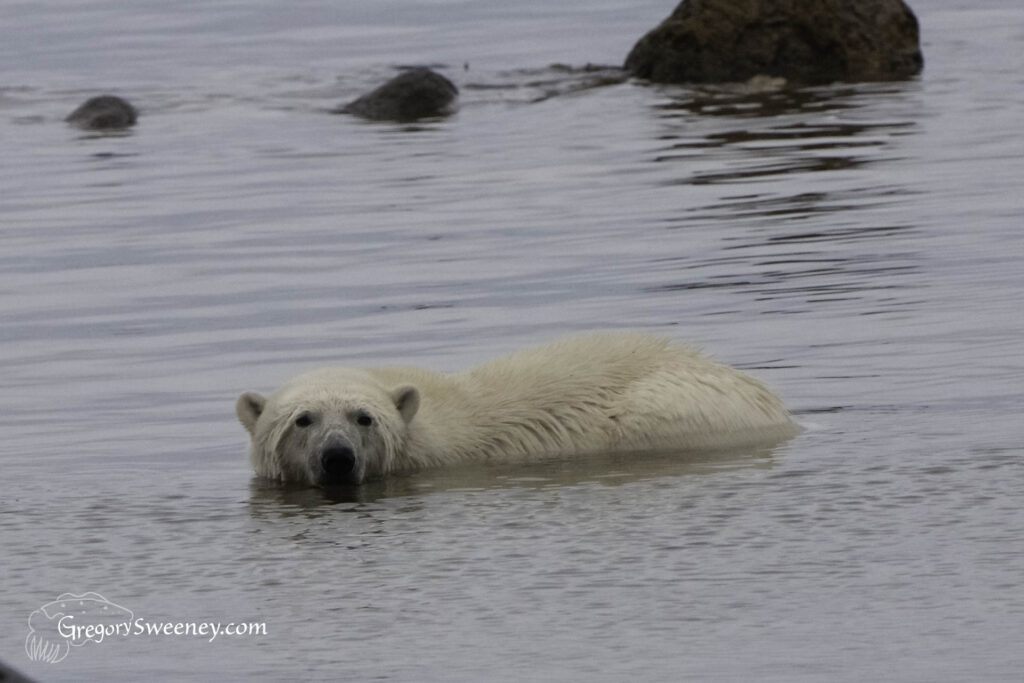
Check my website for our next Polar Bears Trip. https://gregorysweeney.com/
